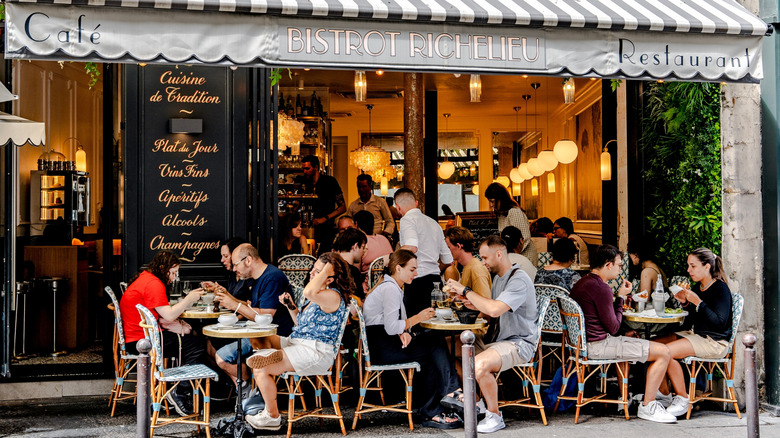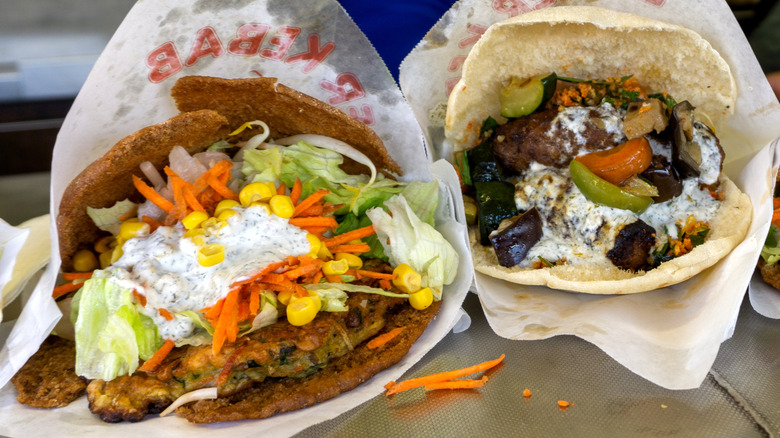Here's What You Need To Know When Trying To Eat Vegetarian In Europe
When traveling to Europe, many visitors try to hit several countries in one trip. This makes strategic sense, but it also makes talking about eating habits difficult, since every country has different food traditions. Still, generalizations can be helpful, so let's skip the nuance and go for a rule that'll help vegetarians traveling to the continent: Be as specific as possible. Although awareness of meatless diets is spreading, it is still common for waiters to think that "vegetarian" refers to a meal not containing red meat. They might say something is vegetarian if it has chicken or fish. Even worse, they might not warn you if a meal contains an animal product that is not obvious, as when a soup has been made with fish sauce. A good way to avoid this happening is to learn how to say that you don't consume any animal in the languages of the countries you're visiting. You might get weird looks, but it'll help you avoid misunderstandings.
Try to do this especially with older waiters or store owners. Younger people are usually more aware of and familiar with vegan and vegetarian practices, even if they don't follow these diets themselves. Older people might have a harder time understanding your restrictions, as any vegetarian with an older aunt or uncle can tell you. (They always try to offer you chicken as an alternative to red meat.) It's also a lot easier to find vegetarian-friendly dishes in big cities than in the countryside.
The importance of doing your research when it comes to staying vegetarian abroad
If you're an intrepid traveler, you can always wing your way to finding accommodations, transportation, and activities. But if you're vegan or vegetarian, don't wing your food choices. We would recommend prioritizing planning your meals above everything else. After all, you'll probably always find a hotel with a room or something cool to do, but you might not find a place where you can eat. Do research for every place that you're visiting, since options and culture vary widely. In sizeable cities throughout the continent, you'll likely find Indian food, which always offers options for people who don't consume meat or other animal products. You can also look up restaurants in specialty websites like Happy Cow. In destinations where vegetarian dishes or restaurants are scarce, you might want to book accommodations that have a kitchen so that you can make your own meals.
You should also do your research on specific foods that are deceivingly non-vegetarian. For example, some pungent cheeses like Parmesan, gorgonzola, and pecorino romano are actually made with an enzyme that comes from the stomach lining of animals. We know, it's heartbreaking. Heck, even French fries are not necessarily vegetarian, since sometimes they're fried in animal fat (thankfully, this isn't a common practice). And if you're a strict vegetarian, look up beers to make sure they don't have isinglass, which comes from fish bladders. When in doubt, order a Guinness, which is guaranteed to be free from animal products.

